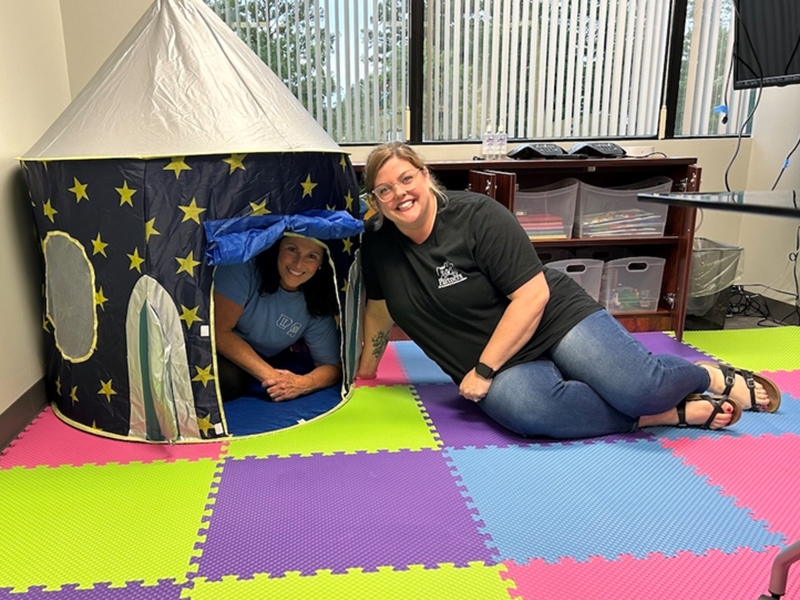
The Blue and You Foundation for a Healthier Arkansas awarded over $170,000 to Partners for Inclusive Communities (Partners), an outreach unit of the College of Education and Health Professions.
This new grant funding will help bolster Partners' work as it pertains to fetal alcohol spectrum disorders (FASD) and the stigma that often surrounds these conditions. This initiative, in addition to three new projects funded by a $10 million grant from the Arkansas Department of Human Services, will help further Partners' mission of facilitating the inclusion of people with disabilities in community life.
Partners Associate Director Elizabeth Cleveland will lead the new endeavor, titled "Identification, Treatment and Education of the Behavioral Health Conditions Associated With Prenatal Exposure to Drugs and Alcohol."
As the only FASD diagnostic clinic of its kind in the state, Cleveland and the team at Partners see patients from across Arkansas and from all around the country. She said that with a prevalence as high as over one in 20 people, there is an urgent need to address FASD and other effects of prenatal substance exposure.
"Widespread identification and understanding of the symptoms that people with these conditions experience are the essential 'first steps' to creating accessible and inclusive environments for people with neurobehavioral conditions like FASD," Cleveland said.
This additional funding for the 2024 calendar year will focus on education, identification and intervention for individuals with prenatal substance exposure in three areas of Arkansas: Springdale, El Dorado and Helena. Teams of professionals will be selected and trained using modules developed throughout the year that equip them with essential evaluation tools to better identify the effects of prenatal substance exposure in target areas.
Cleveland's grant work will also implement surveillance of prenatal substance exposure in preschools to study its prevalence, identify trends in symptomology and understand the environmental and biological factors that put individuals at risk. Additionally, the grant team will conduct a separate intervention study to understand the importance of interdisciplinary care in treating FASD and other prenatal substance exposures.
According to Cleveland, many services for individuals with neurobehavioral conditions currently only focus on what to do in times of crisis.
"We need to stop only trying to put out the fires, and instead focus our efforts on figuring out what's causing the fires in the first place, so we can change it," she said.
In hopes of expanding the inclusion and acceptance of individuals with FASD, Cleveland has worked with self-advocate Amy Smith to launch a new podcast dedicated to discussions about living with FASD. The podcast, titled Purrspectives: Looking Through an FASD Lens, is now available and can be found on the Arkansas Specialty Diagnostic Resource Center website.
"Amy does a beautiful job sharing her story in a way that is not only accessible, but relatable," Cleveland said.
Partners for Inclusive Communities is a member of the nationwide Association of University Centers on Disabilities. For more information on programs and projects, visit the Partners website.
Topics
Contacts
Sean Rhomberg, assistant director of communications
College of Education and Health Professions
479-575-7529,